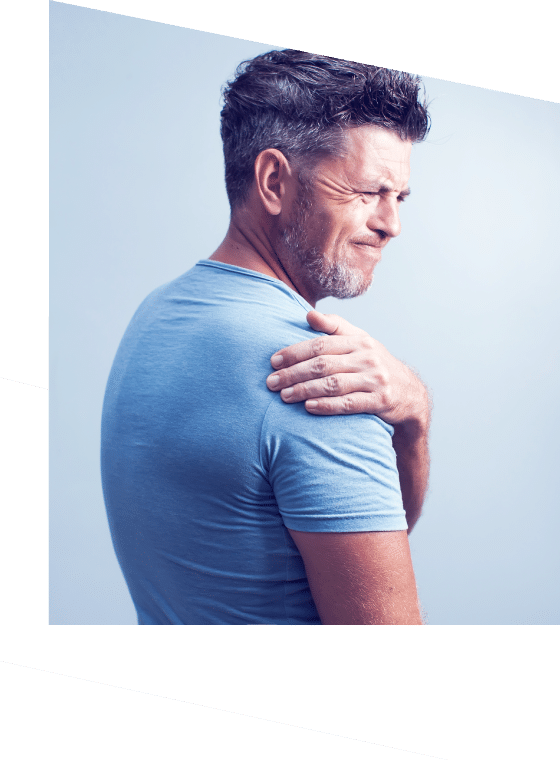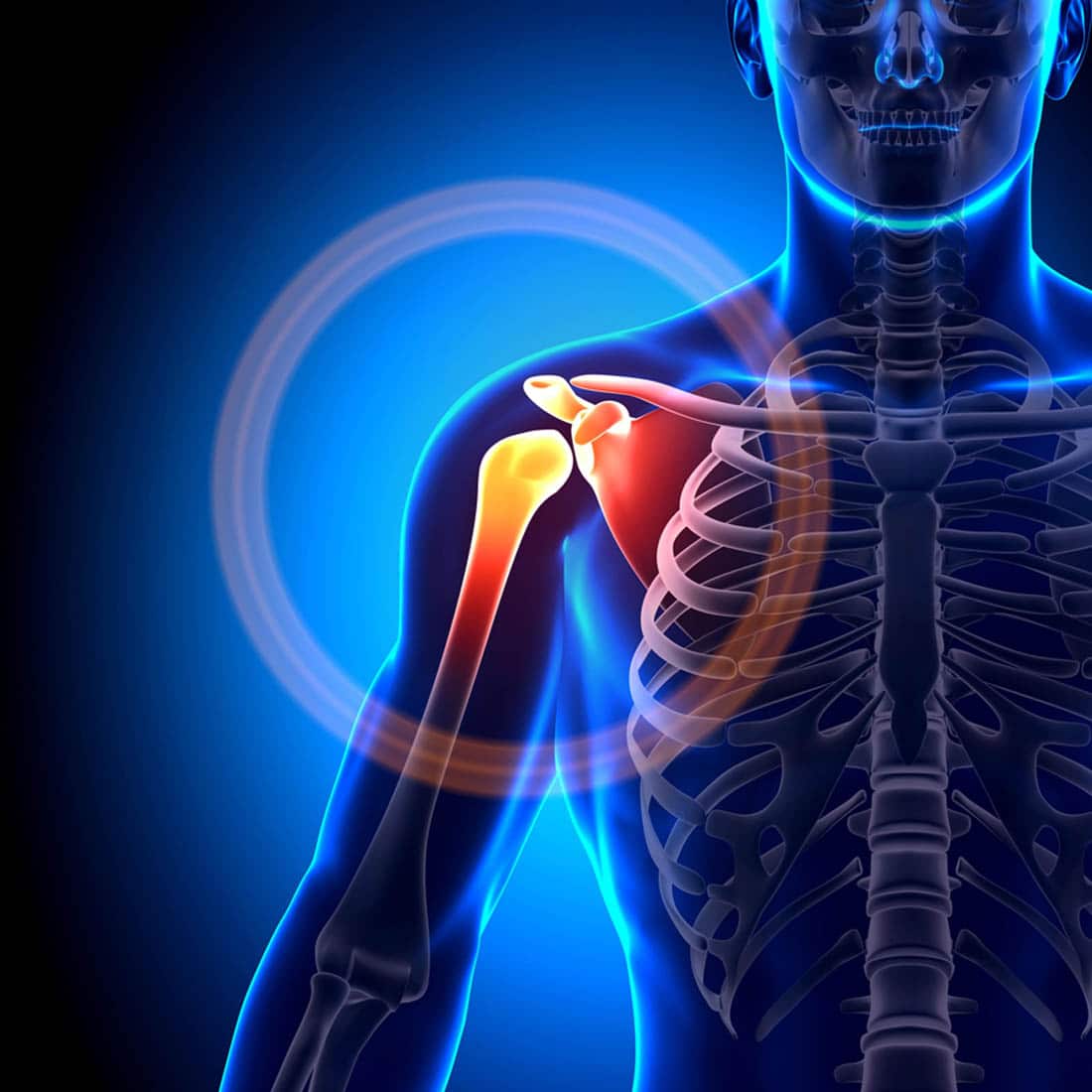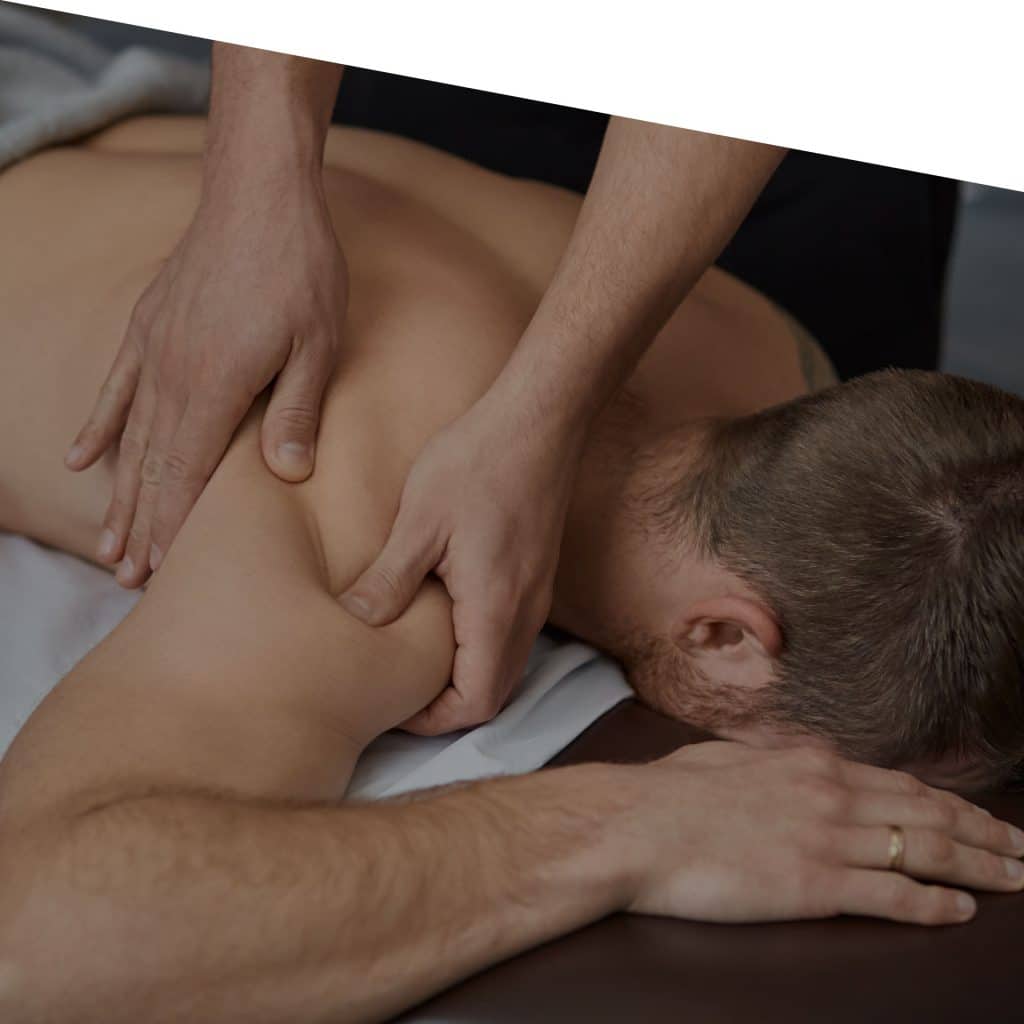Disc Herniation Injury at Infinity Allied Healthcare
Infinity Allied Healthcare offers specialised care for shoulder rotator cuff injuries, providing tailored treatment plans to reduce pain and restore mobility. Through a combination of manual therapy, targeted exercises, and pain management strategies, we aim to promote healing and empower patients to regain optimal shoulder function. Our multidisciplinary team ensures comprehensive support, guiding individuals through every step of their recovery journey.
Advanced Physiotherapists Advanced and modern manual therapy and hands-on technique |
1 on 1 Treatment We listen and aim to help achieve your goals |
Quick Diagnostics We quickly find the root of the condition resulting in great improvements in pain and recovery |
Highest Standard of Care Professional, positive and caring staff |
What is Shoulder Rotator Cuff Injury?
A shoulder rotator cuff injury involves damage to the group of muscles and tendons that surround the shoulder joint, known as the rotator cuff. These muscles and tendons play a crucial role in stabilising the shoulder and facilitating various movements, such as lifting and rotating the arm. Rotator cuff injuries can range from mild inflammation (tendinitis) to partial or complete tears of the tendons. Causes of rotator cuff injuries include overuse, repetitive overhead activities, trauma, and age-related degeneration. Symptoms typically include shoulder pain, weakness, limited range of motion, and difficulty performing everyday tasks. Treatment may involve rest, physical therapy, medication, or in severe cases, surgery. Early diagnosis and appropriate management are essential for optimal recovery and preventing long-term complications.


What causes Disc Herniation Injury?
Shoulder rotator cuff injuries can occur due to various factors that contribute to the wear and tear or structural damage of the muscles and tendons comprising the rotator cuff. Common causes include:
1. Repetitive Overuse: Engaging in activities that involve repetitive overhead motions, such as pitching in baseball, swimming, or painting, can gradually wear down the rotator cuff tendons, leading to injury over time.
2. Trauma or Acute Injury: Sudden trauma, such as a fall onto an outstretched arm or a direct blow to the shoulder, can cause tears or strains in the rotator cuff tendons.
3. Age-related Degeneration: As individuals age, the tendons of the rotator cuff may degenerate and weaken, making them more susceptible to injury, even with minor trauma or overuse.
4. Poor Posture: Maintaining poor posture, such as rounded shoulders or forward head posture, can alter the alignment of the shoulder joint, placing increased stress on the rotator cuff muscles and tendons and predisposing them to injury.
5. Muscle Imbalances: Imbalances in the strength and flexibility of the muscles surrounding the shoulder joint can disrupt the normal mechanics of the shoulder and contribute to rotator cuff injury.
6. Lack of Warm-up or Conditioning: Failing to adequately warm up before engaging in physical activity or lacking proper conditioning of the shoulder muscles can increase the risk of rotator cuff injury during exercise or sports.
7. Genetic Factors: Some individuals may have a genetic predisposition to developing rotator cuff injuries due to variations in the structure or composition of the tendons.
Understanding the potential causes of shoulder rotator cuff injury can help individuals take preventive measures, such as proper warm-up, conditioning, and technique correction, to reduce the risk of injury and maintain shoulder health.
How Can Shoulder Rotator Cuff Injury Be Detected?
Shoulder rotator cuff injuries can be detected through a combination of clinical evaluation, imaging studies, and diagnostic tests. Here are some common methods used to diagnose shoulder rotator cuff injuries:
1. Medical History and Physical Examination: A healthcare provider will typically begin by taking a detailed medical history, including the onset and nature of symptoms, previous injuries, and activity level. They will then conduct a thorough physical examination, assessing range of motion, strength, and tenderness in the shoulder.
2. Imaging Studies:
- MRI (Magnetic Resonance Imaging): MRI is the most common imaging modality used to diagnose rotator cuff injuries. It provides detailed images of the soft tissues of the shoulder, allowing healthcare providers to visualize tears, inflammation, or other abnormalities in the rotator cuff tendons.
- Ultrasound: Ultrasound imaging may be used to assess rotator cuff injuries, particularly in cases where MRI is not readily available. It can provide real-time imaging of the shoulder and is often used for dynamic evaluation of tendon movement.
3. X-rays: X-rays may be taken to assess for any bony abnormalities or calcifications in the shoulder joint. While X-rays do not directly visualize the soft tissues of the rotator cuff, they can help rule out other potential causes of shoulder pain.
4. Arthroscopy: In some cases, arthroscopic surgery may be performed to directly visualize and assess the integrity of the rotator cuff tendons. This minimally invasive procedure involves inserting a small camera (arthroscope) into the shoulder joint through small incisions.
5. Functional Tests: Functional tests, such as the Jobe’s test (empty can test) or the lift-off test, may be performed during the physical examination to assess the strength and integrity of the rotator cuff muscles.
By combining these diagnostic methods, healthcare providers can accurately diagnose shoulder rotator cuff injuries and develop appropriate treatment plans tailored to each individual’s needs. Early diagnosis is crucial for initiating timely intervention and preventing further damage to the rotator cuff.

How can Infinity Allied Healthcare Help?
Infinity Allied Healthcare provides specialised care to address shoulder rotator cuff injuries effectively. Our skilled professionals offer personalised treatment plans tailored to each individual’s needs, focusing on reducing pain, restoring mobility, and promoting healing. Through a combination of manual therapy techniques, targeted exercises, and pain management strategies, we aim to alleviate symptoms and strengthen the shoulder muscles. Additionally, our multidisciplinary team emphasises patient education and active participation throughout the rehabilitation process, empowering individuals to achieve long-term recovery and optimal shoulder function. With our comprehensive approach, Infinity Allied Healthcare is dedicated to supporting patients in their journey towards improved shoulder health and well-being.
For Enquiries
Have a Question?
If you have any questions or concerns regarding Shoulder Rotator Cuff Injury, please feel free to reach out to us. We’re here to help and provide support.
Contact
Information
- (02) 9896 2877
- (02) 8331 5788
- frontdesk@iahc.com.au
- Monday – Friday: 9am to 6pm
Saturday, Sunday & Public Holidays: Closed
Connect With Us
For Enquiries
Our Locations
Chatswood
- Suite 102, Level 1
370 Victoria Ave
Chatswood NSW 2067
(Shared entry with Anytime Fitness Chatswood) - (02) 9411 7711
- (02) 8331 5788
- frontdesk@iahc.com.au
- Monday to Friday: 9am – 6pm
- Located in Chatswood, we are a long-standing private practice treating private, DVA, EPC, CTP and Workers Compensation patients with state of the art treatment techniques.
- 3P parking inside Chatswood Chase opposite to the clinic’s building or 1P metered street parking
Cherrybrook
- Cherrybrook Village Shopping Centre
T12, 41-47 Shepherds Dr
Cherrybrook NSW 2126 - (02) 8998 6670
- (02) 8331 5788
- frontdesk@iahc.com.au
- Monday to Friday: 9am – 6pm
- Located in Cherrybrook Village Shopping Centre, our physiotherapy clinic in Cherrybrook is near you and easily accessible.
- Parking on-site and street parking available nearby.
Parramatta
- Shop B, 8 Cowper St
Parramatta NSW 2150 - (02) 8607 1600
- frontdesk@iahc.com.au
- Monday to Friday: 9am – 6pm
- Located 5 minutes-walk away from Parramatta and Harris Park Station, we are based in an established medical clinic that specializes in Workers Compensation and CTP cases.
- On Street metered parking or 3P at Westfield Parramatta
Seven Hills
- Orana Medical Practice
Shop 4/6 Orana Ave
Seven Hills NSW 2147 - (02) 9676 1001
- (02) 9622 2050
- frontdesk@iahc.com.au
- Tuesday & Friday: 9am – 5:30pm
- Located within a medical centre, we have close proximity to bus stop, and walking distance to Blacktown Hospital and Seven Hills train station.
- Parking on-site and street parking available nearby.
Seven Hills Physiotherapy &
Sports Injuries Centres
- Super Clinic, Shop 49 B, Seven Hills Plaza
224 Prospect Highway
Seven Hills, NSW 2147 - (02) 9676 1730
- (02) 8331 5788
- frontdesk@iahc.com.au
- Monday – Friday: 9am – 6pm
- Between McDonald’s and Australia Post
Toongabbie
- 36 Aurelia street
Toongabbie NSW 2146 - (02) 8607 1600
- (02) 8331 5788
- frontdesk@iahc.com.au
- Monday to Friday: 9am – 6pm
- In the heart of Toongabbie, our newest clinic is easy to locate and accessible for all.
- 1P street parking or Toongabbie Plaza 3P parking (entry to Ground Level Car Park from Cornelia Rd)




